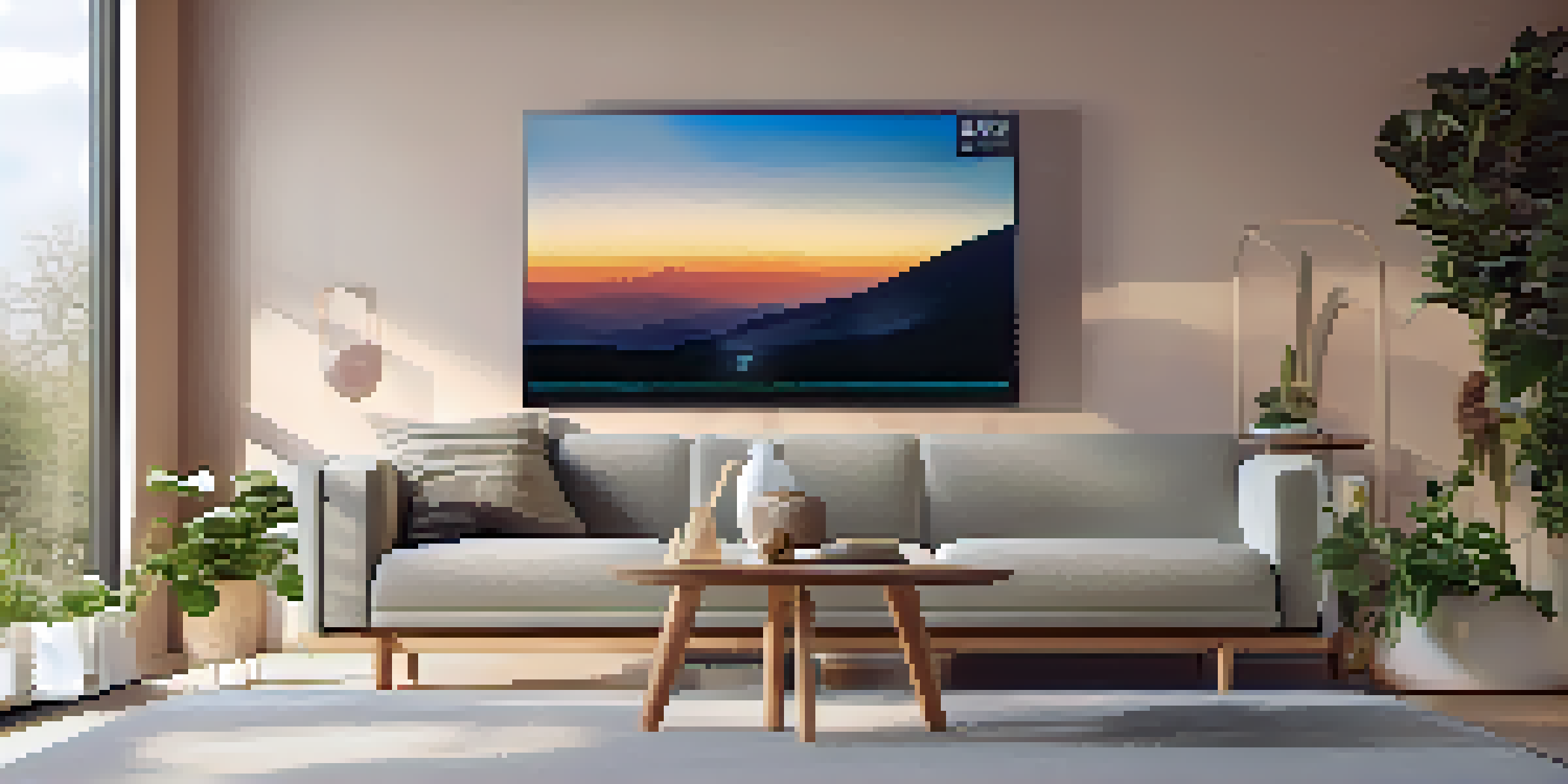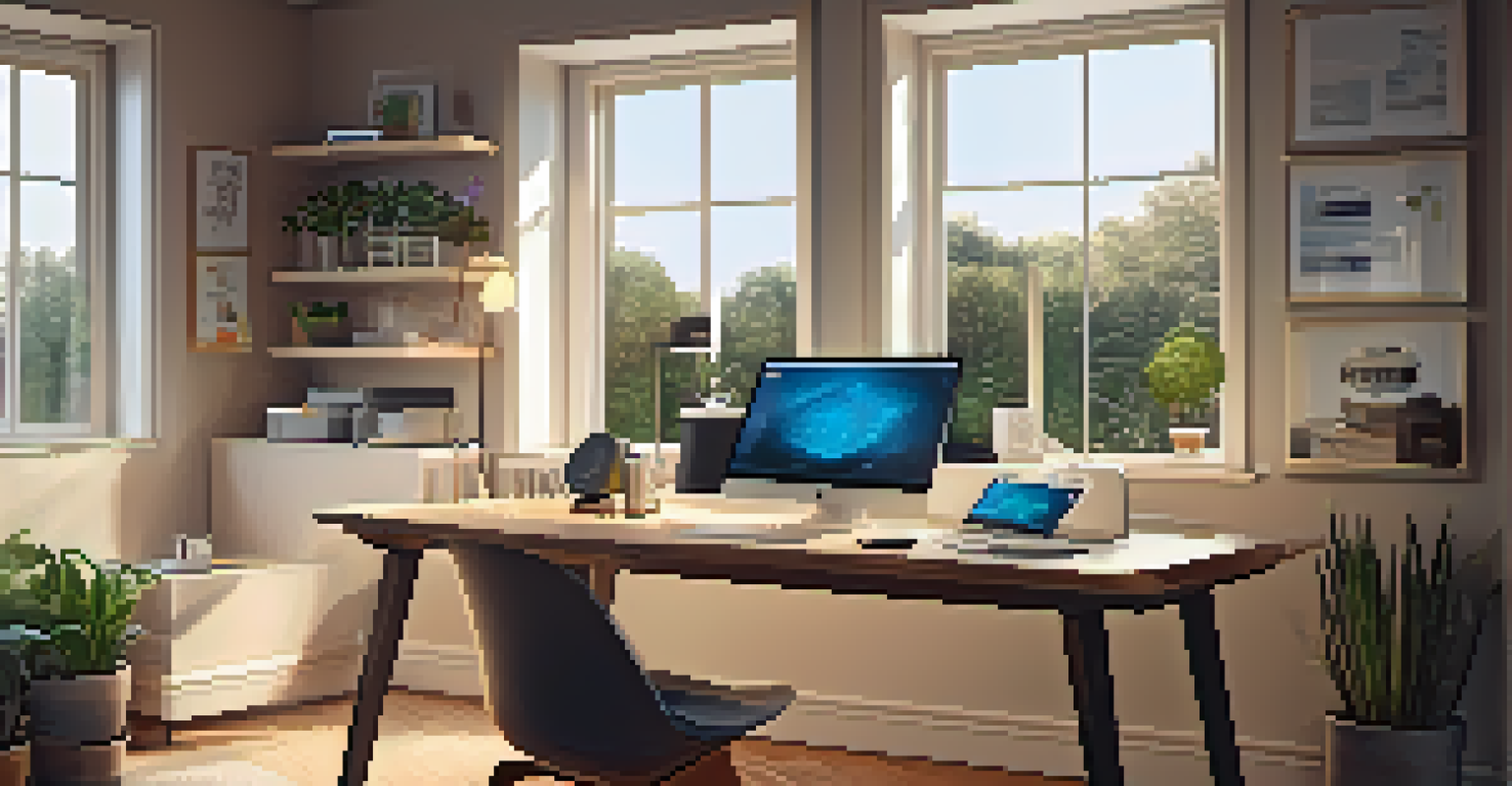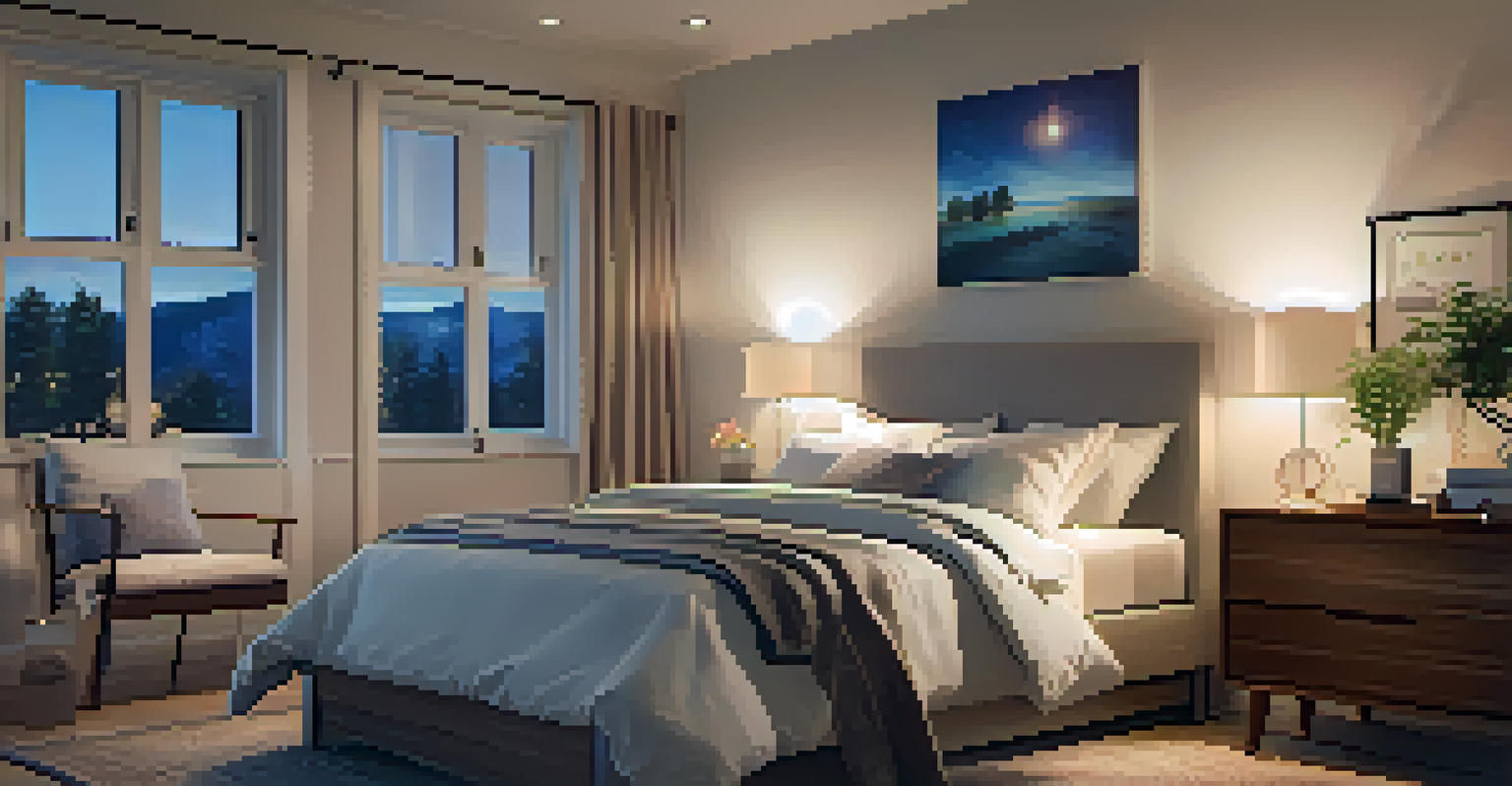A Guide to Choosing the Right Home Automation System

Understanding Home Automation: What Is It and Why Use It?
Home automation refers to the use of technology to control various devices in your home, such as lighting, security systems, and appliances, all from a central hub or smartphone app. Imagine walking into a room and having the lights turn on automatically, or being able to lock your doors remotely. These conveniences not only enhance your lifestyle but can also improve energy efficiency and security.
The greatest innovation of the 21st century will be the intersection of biology and technology.
The appeal of home automation lies in its ability to simplify daily tasks and provide peace of mind. For example, you can set routines that automatically adjust your thermostat based on your schedule, saving you money on energy bills. As we become increasingly reliant on technology, the desire for a connected home continues to grow.
Ultimately, understanding what home automation entails is the first step in choosing the right system for you. Whether it's for comfort, convenience, or security, knowing the benefits can help you make an informed decision that best fits your needs.
Identifying Your Needs: What Do You Really Want?
Before diving into the world of home automation, it's crucial to identify what you want to achieve. Are you looking to increase security, streamline your daily routines, or perhaps both? Making a list of your must-haves can help clarify your priorities and guide your selection process.

For example, if security is your main concern, you might prioritize smart locks, cameras, and motion sensors. Conversely, if convenience is your focus, you might lean toward smart lighting and voice assistants. Understanding your needs ensures that you invest in features that will genuinely enhance your lifestyle.
Define Your Home Automation Needs
Identifying your specific goals, whether for security or convenience, is crucial to selecting the right home automation system.
Taking the time to evaluate your goals will lead you toward a system that fits seamlessly into your daily life. Remember, the best home automation system is one that aligns with your specific requirements and preferences.
Exploring Compatibility: Devices and Ecosystems Matter
One of the most critical factors to consider when choosing a home automation system is compatibility. Not all devices work together; some rely on specific ecosystems, like Google Home or Amazon Alexa. This means you need to ensure that the devices you choose can communicate effectively with each other.
Technology is best when it brings people together.
For instance, if you already own smart bulbs that work with a particular ecosystem, you’ll want to choose a hub that supports them. This can prevent future headaches and ensure a smoother setup. Additionally, some systems offer more extensive compatibility with third-party devices, giving you the flexibility to expand your setup over time.
In short, doing your homework on device compatibility will save you time and effort in the long run. A little research will help you avoid the frustration of purchasing devices that don’t work well together.
Evaluating Features: What Makes a System Stand Out?
As you explore different home automation systems, pay attention to the features they offer. Some systems provide advanced functionalities like geofencing, which allows your home to react based on your location, while others might focus on straightforward remote access. Understanding these features can help you find a system that truly meets your needs.
For example, if you’re often away from home, features such as remote monitoring and alerts can provide peace of mind. Alternatively, if you love entertaining, smart lighting and audio controls could enhance your gatherings. Take a moment to envision how you would use these features in your everyday life.
Ensure Device Compatibility Matters
Choosing devices that work together within the same ecosystem can prevent future setup headaches and enhance your automation experience.
Ultimately, the right features can elevate your home automation experience from basic to exceptional. Look for systems that offer the functionalities that matter most to you.
Budgeting for Home Automation: Costs and Considerations
When it comes to home automation, budgeting is essential. Prices can vary widely based on the system, features, and the number of devices involved. It’s important to establish a budget that not only covers the initial setup but also considers future expansions or upgrades.
For example, while it might be tempting to go for the cheapest option, consider the long-term value and reliability of the system. Investing in a well-reviewed, higher-quality system may save you money down the line on replacements or repairs. Additionally, some systems offer subscription services for advanced features, which can add to your overall costs.
In short, a thoughtful budget will help you make a wise investment in your home automation system. Understanding the financial aspects can lead to a more satisfying experience in the long run.
Installation Options: DIY or Professional Help?
Deciding between a DIY installation or hiring a professional can significantly impact your home automation experience. DIY systems often come with user-friendly instructions and can save you money, but they require a certain level of tech-savviness. If you enjoy figuring out how things work, a DIY approach might be right for you.
On the other hand, if you’re not comfortable with technology or simply want a hassle-free experience, hiring a professional can be a wise choice. Professionals can ensure that everything is set up correctly and can help you avoid common pitfalls. Remember, a well-installed system can function much more reliably than one that’s been hastily thrown together.
Budget Wisely for Your System
Establishing a thoughtful budget that accounts for initial costs and potential future upgrades will lead to a more satisfying home automation investment.
Ultimately, your choice will depend on your comfort level with technology and your budget. Weighing these options carefully can lead to a smoother setup process and a more enjoyable experience.
Future-Proofing Your Home Automation System
As technology evolves, so do home automation systems. Choosing a system that is future-proof can help you avoid the frustration of obsolescence. Look for systems that offer software updates and support for new devices, ensuring your setup remains current and functional.
For instance, some systems allow for the integration of new devices and features over time, while others may become outdated quickly. By opting for a solution with a strong track record of updates and improvements, you can enjoy peace of mind knowing that your investment will last.

In the fast-paced world of technology, being future-ready can enhance your home's adaptability and longevity. A little foresight can go a long way in making your home automation system a lasting feature of your home.